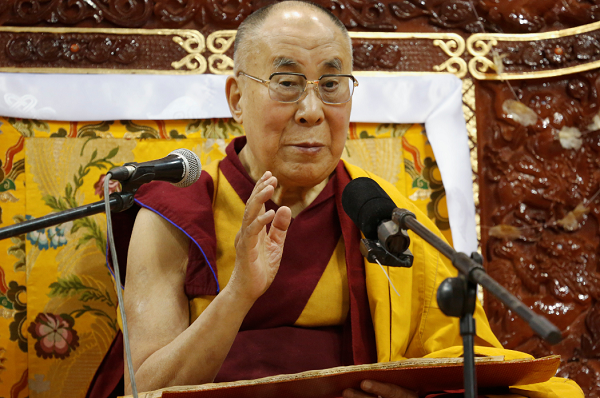China Dalai Lama Conflict: Mongolian Border 'Blocked' Following Tibetan Spiritual Leader's Visit

China has been blocking Mongolian truck drivers from crossing into its borders following a visit from the Dalai Lama, according to reports. More than 100 truck drivers from Mongolian mining conglomerate Rio Tinto were stuck at the Gants Mod border in southeastern Mongolia on Friday after China officials closed off the border entry, which Mongolian authorities believe was a response to the Tibetan spiritual leader’s four-day visit in late November.
It was expected that the Dalai Lama’s visit to Mongolia last month would add to tension between the country and China. The Chinese have been against the Dalia Lama since he fled to India and formed a government supporting Tibet’s independence during his exile in 1959. Although the Dalai Lama retired from political life in 2011, the Chinese still view him as a separationist.
China closed its border when the Dalai Lama visited Mongolia in 2002. It also temporarily canceled flights from Beijing to Mongolia when the Dalai Lama visited in 2006. Before his most recent visit to Mongolia, China issued a warning to the country urging it against admitting the Dalai Lama in an effort to maintain bilateral ties between the governments, the New York Times reported.
New tariffs have been imposed on commodity shipments from Mongolia, Chinese foreign ministry spokesman Geng Shuang confirmed last week. However, Chinese officials haven’t confirmed that the recent border blocking was connected to the Dalai Lama’s visit to Ulaanbaatar.
"As for the Dalai Lama's visit to Mongolia, China has expressed its position many times," Shuang told Reuters.
The border closing came right after Mongolian leaders requested a $4.2 billion loan from Beijing. Mongolia asked for the loan to help pull the country out of a recession. China accounts for about 90 percent of Mongolian exports. However, commodity prices have declined, making it even harder for Mongolia to pay off foreign debts to other countries.
© Copyright IBTimes 2025. All rights reserved.






















